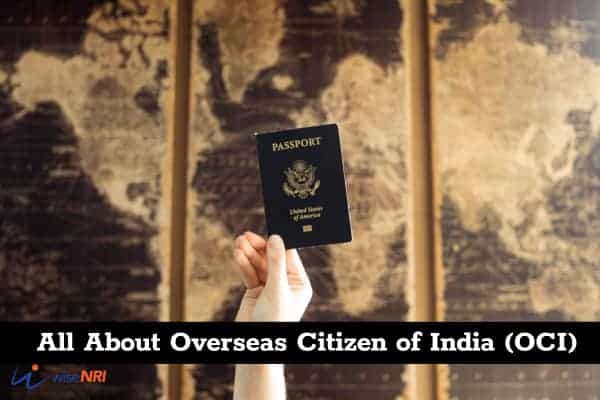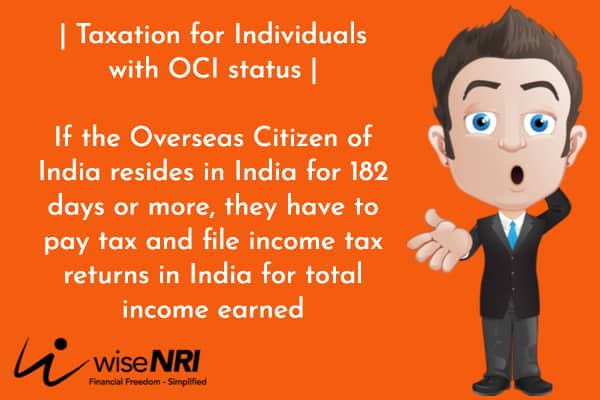What is overseas citizen of India? OCI is immigration status. It is given by the Indian government to a foreign citizen of Indian origin. There are a few new rules – that I have added at the end of this post.

Who can become an Overseas Citizen of India?
A person who satisfies any of the following criteria is eligible to be overseas Indian citizenship (OCI)-
- Is a citizen of India or eligible to become a citizen of India on or after 26 January 1950
- Belonged to a territory that became part of India after 15 August 1947
- Is a minor child of a person mentioned above
- Is a child or a grandchild or a great-grandchild of a person mentioned above
- Is a minor child who has one or both parents as citizens of India
- Is a spouse of foreign origin of a citizen of India or spouse of foreign origin of an Indian overseas citizen, and is married for at least two years before the date of application for an OCI cardholder in India and such marriage is registered.
A person who is or their ancestors at any time were citizens of Pakistan, Bangladesh, China, and others as specified by the rules laid by the Government of India is not eligible to get overseas Indian citizenship.
Must Read – Who is NRI – New Definition & Scenarios
How to apply for Overseas Citizen of India status?
You can visit the site https://ociservices.gov.in/ to apply for overseas Indian citizenship. OCI application fees are ₹15,000 if the application is submitted in India and US$275 if applying from abroad.
Check out this link for more details on processing and documentation requirements.
Recently, a new rule has been established, which says that foreign nationals of Indian origin must have six months of continuous stay in India or their country of residence before they submit an OCI application.
An overseas citizen of India benefits-
A person with OCI status gets certain privileges –
- Multiple entries and lifelong visas to visit India;
- Benefits that NRIs get in financial, economic, and educational fields
- They need not register with Foreigners Regional Registration Officer (FRRO), Foreigners Registration Officer (FRO), or police authorities when they stay in India.
- Parity with resident Indians in fees for domestic airfares, museums, historical sites, national parks, wildlife sanctuaries, etc.
- Opportunities to work and study in India without requirements of special permission.
Must Read – NRI Checklist: Going To Be An NRI?
Are there any restrictions for a person with OCI status?
An OCI cardholder cannot –
- Vote
- Hold government jobs
- Be a member of the Legislative Assembly or Legislative Council
- Hold Constitutional posts
- Purchase agricultural land or plantation properties
- Work on research projects and missionary activities or undertake mountaineering, Tablighi, and journalism tasks without prior permission
What are the rules regarding taxation for individuals with OCI status in India?
If the overseas citizen of India resides in India for 182 days or more, they have to pay tax and file income tax returns in India for total income earned (Income earned in India and abroad). It is subject to the conditions of DTAA (Double Tax Avoidance Agreement).

OCI cardholders who have lived for less than 182 days (in any financial year ) will have to pay tax and file income tax returns only on the income earned in India.
Must Check –Wealth Planning Checklist for NRIs
Indian government ch anges rules for OCI cardholders
Indian government changed rules for Overseas Citizen of India (OCI) cardholders. As per the new rules, any OCI cardholder who wishes to be involved in missionary, ‘tablighi’ or journalistic activities, he will have to obtain a special permission from the government. India’s Ministry of Home Affairs made the announcement in this regard. In addition to this, overseas Indians will have to take permission for internship with foreign missions or need to visit a prohibited area.
The notification also has some benefits for OCI cardholders. It has given them parity with Indian nationals in domestic airfare tariffs or entry fees for national monuments, parks and museums in India.
New OCI card of India rules also turn the spotlight on the dual citizenship debate.
You can contact us for more information and financial guidance on various residential statuses such as NRI, OCI in India, RoR, RNOR, and Residents.

I have Indian passport…I am preeminent resident in UK…can registered agriculture land in India?
Hi, this is all very clear information, my question is, as an OCI holder and having stayed more than 182 days in India in the current financial year, how much are the tax rates? Is it the same as other residents that are citizens of India. Thanks ??
Is an OCI card holder who lives in India permanently an NRI?If he is not an NRI since he lives in India then what is his status for financial transactions KYC?Is he treated same as an Indian citizen as it is in some cases like monument visits, travel etc.?
Hi Jay,
As per my knowledge, his status will be considered as Resident.
I am a US Citizen with an OCI. IF I reside in India for more than 8-9 months in a year do I have to pay taxes in India on unearned income generated in the US. THANKS
Hi Niraj,
As a US citizen with an OCI (Overseas Citizenship of India) card, if you reside in India for more than 8-9 months in a year, you may be considered a resident of India for tax purposes and may have to pay taxes in India on your worldwide income, including unearned income generated in the US. However, it’s important to note that the tax laws of India and the US have a tax treaty that could affect how your income is taxed in each country.
The tax treaty between the US and India allows for the avoidance of double taxation of income by providing tax credits for taxes paid in the other country. However, to benefit from this treaty, you will need to file tax returns in both countries and claim the tax credit in the country where you are a resident. Also, it’s important to note that the US taxes its citizens on worldwide income, regardless of where they reside, so you will still have to file taxes in the US and pay taxes on your US-sourced income.
It’s advisable to consult with a tax professional, who is well-versed in both the Indian and US tax laws, to determine your tax liability and to ensure compliance with tax regulations in both countries.
I just got my OCIdo i need to file taxes this year itself
I am an OCI living overseas. Do I need to pay tax on interest earned on my investment in India?
my parents are pensioners who hold oci cards, how long can they stay in india for holidays without having to file tax returns
If a person works as an OCI in India for more than 182 days, is he liable to tax for property held/ income earned outside India?
How long can an oci holder stay in india without tax clearance
Can OCIs open this account?
Can OCI card hollder retire for rest of life or permanently in India without giving up other citizenship or have to take Indian citizenship to live in India. Was born in India
I want to buy 300 square meters of agricultural land and I have an agricultural certificate.
I am a OCI card holder. I have a job in the UK. But currently i am working from home (working from india) for the same job. My employer deducts tax in UK and pays me as normal. Since i am working for this job from India and its been 8 months now, are there any implications ? Like tax and residential status etc…
Oci card holders tax
I am OCI card Holder, Retired. How long I can stay in India without any tax hassle?
I am an Indian citizen working in UK. I will be applying for a UK citizenship followed by an OCI application. I will be looking to undertake job in Mumbai, India and living in India as an OCI for few years. I was wondering if your organisation provides assistance with understanding implecations of working in India on OCI as well as the taxation. I would also like to know if Indian employers are willing to employ someone with an OCI card. Thankd.
Is inheritance from parents considered as income for which OCI person has to pay any taxes in India?
NO there is no inherit tax in india
When a new rule came in to effect that needs to stay for more than 182 days before applying for OCI ? to whom it applies? suppose any person now becoming a US citizen then can he not apply for OCI immediately ?
I have the same issue, waiting for an expert views
Can an OCI get AADHAR when he visits India?